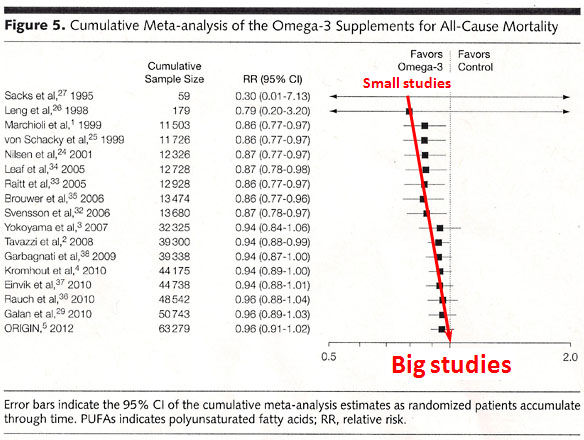Keith Humphreys passes along the sad story today of fish oil’s journey from miracle cure to nothingburger. The chart below shows the evolution of research on Omega-3 supplements over the past 17 years, where a small “relative risk” number indicates a beneficial effect and 1.0 indicates no effect at all:

Humphreys explains how this happens:
When there were only a little data available, fish oil looked like manna from heaven. But with new studies and more data, the beneficial effect has shrunk to almost nothing. The current best estimate of relative risk (bottom row of table) is 0.96, barely below 1.0. And the “confidence interval” (the range of numbers in parentheses), which is an indicator of how reliable the current estimate is, actually runs to a value slightly greater than 1.0.
Why does this happen? Small studies do a poor job of reliably estimating the effects of medical interventions. For a small study (such as Sacks’ and Leng’s early work in the top two rows of the table) to get published, it needs to show a big effect — no one is interested in a small study that found nothing. It is likely that many other small studies of fish oil pills were conducted at the same time of Sacks’ and Leng’s, found no benefit and were therefore not published. But by the play of chance, it was only a matter of time before a small study found what looked like a big enough effect to warrant publication in a journal editor’s eyes.
Caveat lector. Don’t believe everything you read, especially if there’s only one study and it has a small sample size. It’s still possible that fish oil has a slight beneficial effect, but it’s unlikely. Spend your money on something else.
















